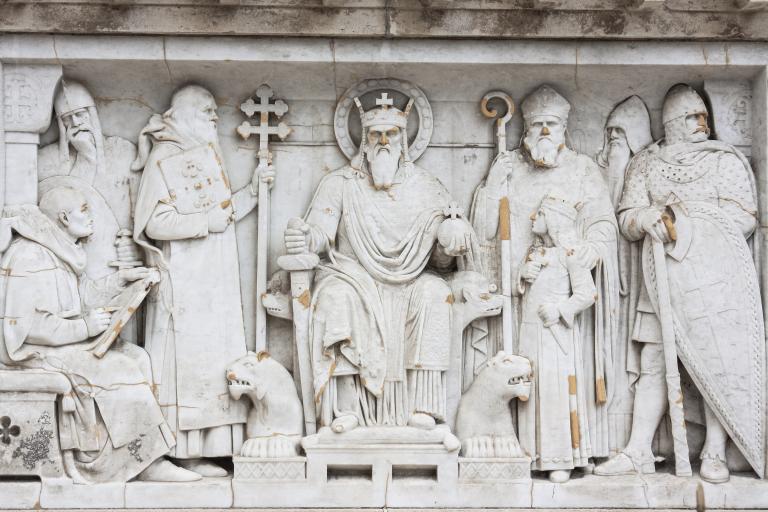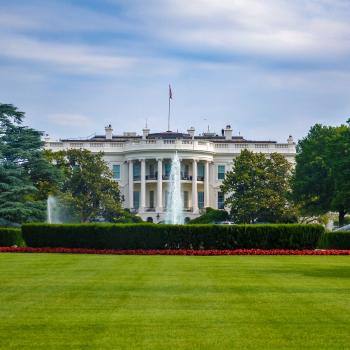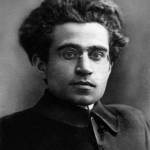
There has been much talk of late about the adiaphora (“things indifferent”) in the context of church-state relations, especially in Reformed Evangelical circles (probably the only circles nerdy enough to have such discussions). The things indifferent, it is said, are those that fall into the temporal realm (as opposed to the sacred realm) to which Scripture either does not directly speak or is silent. These indifferent things are, therefore, it is maintained by some, strictly subject to Christian prudence and experience. They are dictated, at least in part, by the circumstances of life.
Some indifferent things may even be related to worship but are, nevertheless, not constitutive thereof. To say that these indifferent things are not dictated (directly) by divine mandate and are subject to prudential judgment, and within the temporal order, is not to say that they necessarily fall to the decision of the civil authority. Some indifferent things may, indeed, reside under the purview of the ecclesiastical authority.
At this point the distinction between the ius in sacris (right in sacred things), which is never possessed by the civil authority, and the ius circa sacra (right around sacred things), which may be possessed by the civil authority, is usually inserted.
Most recently, the concept of the adiaphora and the distinction between the ius in sacris and ius circa sacra have sometimes been invoked seemingly to avoid tough considerations. Whilst the heirs of the Anabaptists might settle for a simplified, stark separation between the affairs of church and the affairs of state– which, today, owes more to a liberal inheritance of pluralism, maximum human autonomy, and something akin to the live and let live/harm principle of liberty– those who appeal to the adiaphora often do little better in practice. The in sacra/circa sacra distinction has become an excuse to give to Caesar all that he asks for, right up until he demands idolatry or outlaws the preaching of the Gospel in toto, and without imposing any substantive duties vis a vis religion on the magistrate. In both extremes, a fundamental antithesis between the sacred and the temporal is assumed.
But this contemporary version of the adiaphora usually does not account for the theological and political assumptions lying behind it. Indeed, it may be, indeed in all likelihood is, that the confines of adiaphora have, for various reasons (contextual and otherwise), undergone a seismic shift, towards expansion, in the last 400 years or so.
What many of those who invoke the adiaphora concept often fail to consider, or at least mention, is the book of the creature, God’s revelation not only through the order of nature but through the natural law implanted in the hearts of men, attested to by the traditions of the church, and republished in summary in the Decalogue. To past theologians–before the Enlightenment took hold and ushered in ubiquitous doubt resultant from an obsession with epistemology–things drawn from the book of nature were certain. The scope of these things was more limited, their ceiling lower, but they were nevertheless generally accessible and, most importantly, owing to their shared source with Scripture, were true.
On both fronts, in questions of what Scripture does instruct (either by direct command, inference, or good and necessary consequence) and what the light of nature reveals, a diminished certainty marks out our day from days past and deepens the chronological chasm between us and our confessional forbears (at least for those who subscribe to the WCF, SDF, or LBC). Hence, the freedom of the church and the authority of the magistrate in religious matters oscillates between extremes. What is further lacking at both poles is an organic conception of the societal whole, a vision for the holy community and a fully integrated life– the basically medieval assumptions of Protestants (especially in England and New England) during the 17th century.
In the same way–or, indeed, because of this– the now outdated and discarded assumptions about church-state are not remembered in this context and are, therefore, left behind when considering the conceptions of adiaphora.
***
Commenting on A.S.P Woodhouse’s introduction to Puritanism and Liberty, David Walker, deems the former’s primary insight as that Puritan views of church and state depended, to a significant extent, on arguments from not just theological analogy but, specifically, from typology. Woodhouse noted the preoccupation with theological arguments in the political thought of the 17th century– “the tendency… to carry the implications of dogma into secular life”– and the Puritan being distinguished from the Anglian only by the degree, manner, and mode in which theology was employed politically. (As John Eusden has rightly noted, especially in the first half of the 17th century, the political differences between Anglican and nonconformist have been exaggerated.)
“The [theological] terms in which the Puritan insists that the argument shall be carried on, are real to him, and of first-rate historical importance because they are the terms in which he views his world,” wrote Woodhouse. Theological explanations of the political could not be avoided. But shared vocabulary and conceptual framework did not produce uniformity– else the 17th century would have been less eventful.
It was divergent typologies, as much as anything else, that produced such variegated political views in the 17th century within an admittedly group that was nevertheless drawing upon a common theological base.
Walker holds that even amongst those Puritans who more radically bifurcated the spiritual and the secular, nature and grace, it was not implied that “the organization of the church and the relation of church and state were ‘things indifferent’ and at the discretion of the civil magistrate.” This even though church and state polity and church-state relations are not directly delineated in Scripture.
Nevertheless, declared Woodhouse, Puritans of nearly every stripe “insisted that these things are prescribed, and that… one must interpret the autonomy of the spiritual sphere [n.b. Woodhouse is not using this in the same sense as Abraham Kuyper, et al.] as including the freedom of he church.”
Woodhouse: “Alike in Presbyterians, Congregationalists, and the sects, the ideal of the ‘holy community,’ pure in doctrine nd exemplary in life, is dominant; but with very different effects upon political thought and action.” Debate as to the form or polity of both church and state ensued, but none of the interested parties doubted that revelation, either scriptural or natural, would resolve the matter and thereby direct the commonwealth toward the realization of the holy community.
“Puritanism was not only committed in all sections to the ideal of the ‘holy community,’ but, in most of them [excepting the Separatists], strongly drawn to the establishment of its [national] reign outside the body of the elect, where, since persuasion [of the church] could be of no avail, reform must be by coercion.”
As Woodhouse recounts, typological arguments grew in frequency as the English Civil War unfolded and the role of the magistrate vis a vis the church (and the relatively new conception of “sovereignty”) was debated:
“If one was to escape the conclusion which the Old Testament enforced in a particular issue (as, for example, in the question of the magistrate’s power in religion) it could only be by an appeal to the New Testament, with an elaborate argument tending to prove that Israel was ‘typical’, that its law (or some part of its law) was abrogated by the appearance of Christ, who was the ‘antitype’, and that Israel furnished, therefore, no literal model for life under the Gospel.”
And where no typological reference was available, the law of nature (including arguments from classical metaphysics) was sufficiently perspicuous to 17th century minds that it could easily be called up to fill the gaps.
The relationship between church and state, the sacred and the temporal, and the relative duties and limits of each was evident to the Puritans (and their counterparts), which is not to say that disagreement was absent. What was (generally) shared was the confidence in the accessibility of the requisite material to settle the matter (eventually). Disagreement notwithstanding, these were things not indifferent. Though the form of polity might be up for grabs and dictated, to some extent, by prudential responses to circumstances, how church and state would and should relate was discernable (by our standards) with some exactness.
***
Mentioned above was the fundamentally medieval political assumptions standing back of the debates over the relationship between church and state. Like so many other things about the Puritan mind, Perry Miller captured this aspect perfectly, and described it elloquently.
In his Errand Into The Wilderness, Miller reminded the reader that it was not until the 18th century that both the modern epoch of natural science and political theory was inaugurated. The new century marked the first time that religion and politics could be conceptually bifurcated, that “doctrinal orthodoxy [could be] divorced from loyalty to the state.” But prior thereto, it was “not possible to segregate man’s spiritual life from his communal life.” The Puritans of Massachusetts Bay sought to establish, in the words of Winthrop, “a due forme of government both civull and ecclesiasticall.”
Hence, “Puritan opinion [on both sides of the Atlantic] was at the opposite pole from Jefferson’s feeling that the best government governs as little as possible.” Society was a unit, “bound together by inviolable ties; they thought of it not as an aggregation of individuals but as an organism, functioning for a definite purpose, with all parts subordinate to the whole.” This unified, organic expectation for society had implications for both church and state, and the relationship between the two.
“Puritans did not think that the state was merely an umpire, standing on the side lines of a contest, limited to checking egregious fouls but otherwise allowing men free play according to their abilities and the breaks of the game. they would have expected laissez faire to result in a reign of rapine and horror. The state to them was an active instrument of leadership, discipline, and wherever necessary, of coercion; it legislated over any or all aspects of human behavior, it not merely regulated misconduct but undertook to inspire and direct all conduct.”
“The views of the nature and function of the state were not peculiar to the Puritans,” said Miller, “they were the heritage of the past.” In his first installment of the New England Mind, Miller again noted the medieval intellectual inheritance of the Puritans. Nowhere was this fact more evident than in their political thought.
***
For political thought to be “genuinely medieval,” wrote Otto von Gierke in his Political Theories of the Middle Age, it must begin with the whole, though it “ascribes an intrinsic value to every Partial Whole down to and including the Individual.” Each part is determined by the “final cause of the Universe, and the Whole with a [intermediate] final cause of its own.”
“[S]ince the World is One Organism, animated by One Spirit, fashioned by One Ordinance, the self-same principles that appear in the structure of the World will appear once more in the structure of its every Part.” According, per Gierke’s summation, “the Theory of Human Society must accept the divinely created organization of the Universe as a prototype of the first principles which govern the construction of human communities.”
Since unity is the first constitutive principle of the universe, and divine reason “permeates all apparent plurality,” the divine will governs the world, directing all things to one final end, as well as immediate ends proper to the parts of the whole that nevertheless, as stated, maintain their own integrity. Order, then, “consists in the subordination of Plurality to Unity,” and this is apparent in every living organism that serves as a microcosm of the larger whole. And in every living thing, every compound substance, one (“aboriginal”) principle serves to unify the plurality and thereby direct the integral whole to its end.
The soul serves as this principle in the human being; it animates, unifies, and directs the whole being (albeit the soul itself is composed, for lack of a better term, of a multiplicity of powers and faculties).
These same principles, to the medieval (and early modern) mind, apply to the social order. The medievals began with the assumption of a single human community (mankind), as a partial whole within the grander whole of the universe, and with a distinct final cause of its own– which is also distinct from the final cause of individuals–that, nevertheless, is wrapped up and in congruity with the final cause of the universe. Mankind is of one race, subject to one true church, ruled by one divine law, and governed by one government of God’s providence.
Despite this foundational unity, in the social order, it was accepted that, owing to man’s dual nature of body and soul, as well as to his lapsarian state, the social community must be organized into two orders– this done without abandoning or compromising the unities mentioned above; we are working downward.
There is a spiritual or sacred order and a temporal order. The two orders (the Regnum and the Sacerdotium) contain within themselves, and are ordered to, separate immediate ends. But they also share a final end, as, ultimately, do all things within the universe. Both orders have a divine mandate, and both are limited by said mandate and metaphysical nature.
The two, though independent, are to act as coordinate powers, “two sides of the one Christian Commonwealth;” two powers within the same city. They submit to one another in appropriate matters and aid one another in all things, according to their proper jurisdiction.
In the final analysis, however, the church (like the soul) enjoys the “sublimer aim,” man’s eternal bliss and salvation. The church is owed and depends upon protection and support from the state, but the state requires the church for its very legitimacy. The idea of a purely secular state was anathema to all but Thomas Hobbes prior to the 18th century, for the state is but one part of a commonwealth. If the commonwealth is analogous to a metaphysically composite human being then both body (state) and soul (church) are required for its existence. But the soul is not dependent on the body for its own existence, rather it is the soul that animates the body. So, though a full person cannot exist without both, it is the soul alone that is immortal and immaterial contradistinguished from the body. “In this sense,” says Gierke, “it is from the Church that the Temporal Power receives its true being… It is a mean[s] or instrument of the single and eternal purpose of the Church.”
***
Over at Conciliar Post I have written about how the Puritans of New England, specifically John Cotton (whose views I take to be largely conventional for the time), perpetuated these medieval assumptions about church and state and the social order generally–obviously making Protestant adjustments. Their political theory was fundamentally integralist.
Looking specifically to the role of the magistrate vis a vis the church, he is to not only protect her but also aid her in her mission. The magistrate is to pave the way, so to speak, for the church to furnish the soul of the commonwealth. This means, inter alia, that false doctrine (as designated by the church), heresy, blasphemy, idolatry, and the like (and especially their obstinate public profession) are the be civil punished. The truth is, at all times to be promoted.
In The Ancient Bounds (1645), which is usually attributed to Francis Rous (1581-1659), a politician (briefly speaker of the House of Commons), lawyer, and member of the Westminster Assembly, the author writes,
Magistrates doe prepare by a good Government for the Gospel; Civility not rested in, nor mistaken for godlinesse, makes men in a more proximious outward capacity for, and disposition towards Religion, in as much as they are thereby restrained from grosse prophanenesse, and insolent opposition of the truth, whereby the Word may come amongst them with safety to the persons of those that bring it.
Rous continues,
Thus wee have committed to the Magistrate the charge of the second Table; viz. Materially, that is he is not to see God disho∣noured by the manifest breach thereof, or any part thereof; But is that all? No surely; He may enter the vault even of those abomina∣tions of the first Table, and ferret the Devils and Devil-worship out of their holes and dennes, so far as Nature carries the candle before him: Therefore it seemes to me that Polutheisme and Atheisticall doctrines, which are sins against the first Table and Commandement; and Idolatry, (which is against the second Commandement) such as may be convinced by naturall light, (or the letter of the command where the Scriptures are received) as the worshipping of Images, and the breaden-god, the grossest Idolatry of all; these so far forth as they breake out and discover themselves, ought to be restrained, exploded by the Christian Magistrate; for ’tis that which a Hea∣thens light should not tolerate, nature carrying so far; Rom. 1. and also blasphemy, which is against the third Commandement, and is a common nusance to man-kind; and the insolent prophanation of the Lords day (though the keeping of it be not obvious to Natures light) ought not to be suffered by the Christian Magistrate.
This does not imply that the magistrate meddles in internal disputes over doctrine and etc. within the church, only that he punishes rank, insolent falsehood without.
For though the Christian Magistrate well discharging his place, doth promote the spirituall good and edification of the Churches, yet not immediately and directly, but by and through a politique good, as he procures rest and safety to them, and so they are edified, Act. 9.31. Which is a very considerable and needfull service, while the publique worship and the Churches in the exercise thereof (though according to their being and beauty in the Spirit, they transcend the understanding and principles of the world, yet) are circumstanced & habited with such outward relations and considerations as need such a worldly provision, which Magistracy applying it selfe unto God, hath therefore (by the rule of proportion, 1 Cor. 12.23. whereby the lesse honourable parts have more honour given them) provided a more abundant worldly honour for the Magistrate (then for Ecclesiasticall Officers) for their worke sake.
Nor does any of this constitute an infringement of the liberty of conscience. Blasphemy, idolatry, and etc. are public, visible sins. Their punishment is not, strictly, a punishment of ideas as such, but rather their public manifestation which constitutes a threat to the church, the soul of the commonwealth.
The Christian Magistrate ought to be a Nursing Father to the Church, to nourish the truth and godlinesse. The begetting Father he is not, that is Christ, the everlasting Father by the seed of the Word. But the Magistrate is to conserve and maintaine the Churches peace and liberty, in the exercise of their consciences, and worshipping of God in all his Ordinances according to their light; and so he is to exercise a defensive power for Religion both at home and abroad.
The magistrate is not proactive in that he does not spend his days examining the opinions of all men. Rather he preserves the peace and paves the way for the propagation of the Gospel, and through political means supports the church.
for herein… no mans liberty is infringed, no mans Conscience inthrall’d, truth not at all prejudiced or obstructed, while onely manifest impiety and prophanenesse is excluded, and the peace of those that are better disposed procured, and scandall avoyded by these Negatives. And thus farre the Magistrate is Custos utriusque tabulae, not to require the Positive so much, as to restraine the Negative; and all this Nature teaches hitherto.
The magistrate’s chief concern is public morality, not internal, personal orthodoxy. But even in this he receives the advice and consent of the church as to what public morality is comprised of.
as belonging to the third Commandement, the Christian Magistrate may, not onely require a conversation and practise moralized according to the Principles and light of Nature, where they run lowest, as among the Heathen; but as they are improved and raised by the Gospel, through the common irradiation thereof.
That is, in a commonwealth that has been sufficiently instructed by the Gospel, the expectations for public morality are higher, and, therefore, the magistrate’s leeway greater.
The magistrate, as the representative of the temporal power which, has as his chief, immediate end the common good of society. But as Rous alludes to below, man being not only a material but a spiritual being, the common good necessarily includes within the consideration of the spiritual good; the two are intertwined. Although the temporal power cannot achieve the spiritual good for man, it can support the means through which that ultimate good is achieved (i.e. the church).
For though the light of Nature be Gods Law in the hearts of men, not to be violated, and the preservation of societies one end thereof, not to be despised; yet certainly the Christian Magistrate, as he hath his authority from God, so he is to take the Rise of exercising it from him who hath not committed to him the sword in vaine; and he is to ayme at the glory of God (the preventing or redressing his dishonour) in every act thereof, and to punish evill out of that consideration that it is evill: though God hath given him that Rule to pro∣ceed by, and to make out the evill of evill to the world, even the contrariety thereof to the light of Nature, and the good of Societies. Wherein also God hath admirably shewed his wisdome and goodnesse, both in twisting and combining so the interests of his glory, (in this sense we speake which is negative) and the happinesse of societies, that this latter cannot be without the former.
***
In the end, the relationship between church and state was no matter of indifference because the legitimacy of the state, the integrity of the whole of society, was dependent on the state’s support of the church and her purity of worship. There existed in that context a level of trust between the two powers that has long since departed from our midst. In this sense, in a time past, the state could be trusted to, say, temporarily order the abstention from public worship on account of a fire or plague because the state’s recognized and self-conscious duty was her protection– that of her members, doctrine, and worship. But the Puritans (whether clergyman or magistrate) were not indifferent in these things up to the point of being commanded to preach idolatry or cease preaching altogether. In their context, the state would have been called out for overreach long before it ever got to that point. The purity of doctrine and worship and practice of the church was of the utmost importance to both civil and ecclesiastical authorities; and scripture and nature had illuminated (to a greater extent than is today acknowledged) the roles, jurisdiction, and relationship of the two coordinate powers, especially as related to worship and the propagation of the Gospel.
The early modern conception of an organic, balanced, rightly ordered social structure did not allow much room for indifference. For where one of the two powers overstepped its jurisdiction, the entire order was frustrated. A cursory reading of relevant 17th century texts shows that very few matters qualified as indifferent (adiaphora). In that time, theologians were confident that either Scripture itself or the light of nature (from which much of the above assumptions on the social order were drawn) sufficiently answered the question.
The magistrate’s duty toward the church was diaconal, just as the church’s was to the magistrate. Deference is implied in this arrangement. The magistrate was to submit to the church’s moral teachings, and was to defend her doctrine as she discerned it from aggressors. Likewise, her worship was to be preserved for the sake of the soul of the commonwealth.
Any capricious order limiting even the circumstantials (time, place, number, and mode) of the church and her practice would have, therefore, needed to have been justified (and equitable) by the magistrate according to his prescribed duties toward the church. If she was ordered to close her doors for her own safety (or of necessity such as in time of fire or war) then good faith was assumed. But if it had been shown that the interests of the church, her doctrine and worship, were not in view of a civil order, then it would have been deemed invalid. A violation of the church’s interest represents a dereliction of magisterial duty, an abandonment of his supreme concern. Even if something was deemed to be adiaphora (not clear from either of the two sources of revelation) the duty of the magistrate (which was certain) to the church would dictate his handling of the matter. Promotion of the truth and support for Gospel ministry were top priorities that indirectly influenced all policy.
An attack on the soul is an attack–an attempted suicide, really–on the entire commonwealth. It is only in death that soul and body are separated; only then is there something akin to a fundamental antagonism between the two.
Image credit: @alex_quezada/Unsplash
















